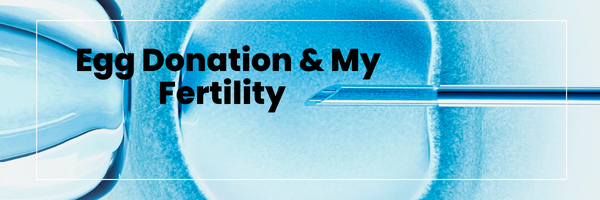Being an egg donor and donating your eggs to help infertile couples start a family is indeed a big decision. Many women choose to become egg donors for both altruistic reasons and the financial incentive it provides. One common concern among potential egg donors is whether the process could affect their future fertility and ability to start a family of their own. However, based on current studies, there is no evidence to suggest that egg donation jeopardizes future fertility. Here are three key facts to address any questions you may have on this subject:
- Future Fertility Status: Before becoming an egg donor, you will undergo comprehensive screenings and tests conducted by doctors who specialize in the egg retrieval process. These screenings are designed to assess your fertility status. If you pass these screenings and receive medical clearance, it indicates that your fertility is unlikely to be affected by the egg donation process. The advice of health professionals should guide your decision on whether to proceed with egg donation.
- Egg Reserve: Typically, healthy women have a large number of eggs in their egg pool, estimated to be around 500,000. During an egg donation cycle, only a small number of eggs, usually 10 or fewer, are retrieved. In a normal menstrual cycle, only one egg reaches the ovulation stage, while the rest are naturally discarded. Therefore, the eggs retrieved during the egg donation process would have been naturally expelled anyway. Donating eggs does not deplete or diminish your overall egg reserve.
- Infertility Risk: The risk of infertility associated with egg donation is primarily related to complications that may arise during the retrieval process.
To safeguard your future fertility and reduce the risk of complications, it is advisable to allow a significant amount of time between egg donation cycles. The specific timeline for resting between cycles should be discussed with the medical professionals overseeing your care. This period of rest allows your body to recover and restore normal functions, lowering the likelihood of complications.
Those choosing to participate in an egg donation process can expect to have their personal lives inconvenienced a little until after retrieval. This process takes about a month from the start of meds to the retrieval of the eggs. There will be 8-10 required visits to the doctor. Medication has to be taken regularly and on a strict schedule. This may very well affect your work or school. There is some flexibility on the timing of appointments and most clinics will work with you for the best collaboration.
Even though there are inconveniences and discomforts to being an egg donor, many donors welcome the opportunity to do it again. The reward of helping create a happy family overshadows the above-mentioned risks for most.
We welcome you to visit www.EggDonorInformation.com to learn more about other risks of being an egg donor.

We help Intended Parents Create Happy Families via Egg Donation & Surrogacy with the help of caring Egg Donors & Surrogates.
What is Egg Donation, Can I be an Egg Donor, Egg Donation Process, Common Egg Donation Questions, Becoming an Egg Donor, Qualifying as an Egg Donor, Egg Donation, Egg Donor process, Why to go through an agency?, Egg Donation Overview. Listen to our Podcast

